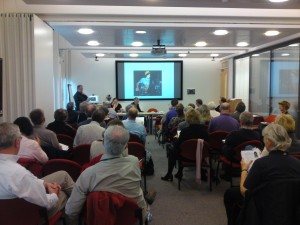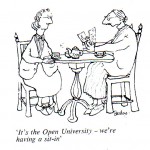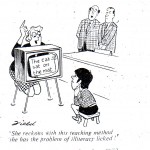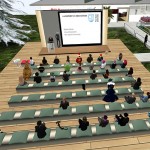Registration now open!
Thursday, October 13th, 2011The History of The Open University Project is very pleased to announce that registration for the following event is now open.
What have we learnt?
Transmitting knowledge, facilitating learning c1960-2010
29 November 2011, 10:30-15:30
Library Seminar Rooms 1 and 2, The Open University, Walton Hall, Milton Keynes MK7 6AA
Higher education has played a significant role shaping our culture and our social, religious, ideological and political institutions. Since the Second World War, in common with other western societies, the UK developed mass higher education from an elite format. New universities opened and existing institutions became polytechnics and later universities. In 1969 the Open University provided a new form of higher education institution. The existing universities developed new student bases and students engaged with a variety of communities
 This one-day forum, organised by the History of The Open University project, brings together a range of experts to discuss elements of the history of higher education over 50 years.
This one-day forum, organised by the History of The Open University project, brings together a range of experts to discuss elements of the history of higher education over 50 years.
The morning session will ask how have students been taught, looking at the move from traditional lectures and tutorials to the use of new technologies, a variety of pedagogies and the development of student-centred learning.
The afternoon session will reflect on 50 years of the student experience, placing learners’ perspectives at the centre.
Speakers include:
- Prof John Beckett, University of Nottingham
- Dr Georgina Brewis, Institute of Education
- Prof Judith George, The Open University
- Prof Fred Gray, Sussex University
- Dr Janet MacDonald, Higher education consultant
- Prof Andy Northedge, Higher education consultant
- Prof Harold Silver, Author of Tradition and Higher Education
- Prof Malcolm Tight, Lancaster University
- Dr Dan Weinbren, The Open University
There will be a short meeting at the end of the day for current researchers to discuss future workshops in the context of preparing a funding bid.
The workshop is open to all, but those who wish to attend are asked to register in advance as space is limited.
More information, including a provisional agenda and abstracts from the speakers are now available here.
To register please email [email protected].





 In 1972 the intention of a psychology course film of children talking and teachers at work in schools was for the student to hear ‘not the analysis of a lecturer but the actual voices of teachers, children and parents… the filter of the lecturer’s personality has been effectively removed’. A sociology film made in the same year used a hidden camera in a hostel for ‘mental sub normals’. There was little editing as the aim was that students could form their own opinions and use it as a starting point for discussion. In 1976 Arthur Marwick (Professor of History at the OU) argued that his aim was ‘to leave each piece of film to speak for itself without being overlaid by an intrusive commentary’.
In 1972 the intention of a psychology course film of children talking and teachers at work in schools was for the student to hear ‘not the analysis of a lecturer but the actual voices of teachers, children and parents… the filter of the lecturer’s personality has been effectively removed’. A sociology film made in the same year used a hidden camera in a hostel for ‘mental sub normals’. There was little editing as the aim was that students could form their own opinions and use it as a starting point for discussion. In 1976 Arthur Marwick (Professor of History at the OU) argued that his aim was ‘to leave each piece of film to speak for itself without being overlaid by an intrusive commentary’.